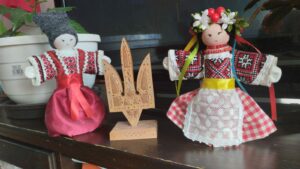To get together – Enhancement of the capacities of displaced communities from Ukraine living in Slovakia through living heritage
Grant scheme: UNESCO
Project leader: Mgr. Martina Wilsch, PhD.,
Project manager: Mgr. Martina Wilsch, PhD.
Financial manager: Mgr. Branislava Kolesárová
Duration: 2023-2025
Project To get together – Enhancement of the capacities of displaced communities from Ukraine living in Slovakia through living heritage focuses on the role of living heritage for communities displaced from Ukraine due to the war and its protection. The project is based on the outcomes of the UNESCO project “Assessing the needs of living heritage safeguarding among displaced communities from Ukraine in five countries: Hungary, Moldova, Poland, Romania, and Slovakia,” which was carried out in the period from April 2022 to December 2023 also in Slovakia.
The project concentrates on ‘using’ the living heritage of the displaced populations to strengthen their resilience, improve their health and well-being, provide possibilities for networking among Ukrainian communities, and promote social cohesion between refugees and the host society. By providing a safe space for the practice and transmission of different forms of ICH, the project aims to encourage and support the transmission of living heritage among the Ukrainian communities in Slovakia, including intergenerational transmission, and to raise awareness of the importance of safeguarding living heritage for displaced communities.
It is implemented by the Institute of Ethnology and Social Anthropology in partnership with the civic association Sme Spolu and the Milan Šimečka Foundation. Project is funded by UNESCO and the Intangible Cultural Heritage Fund of the 2003 Convention for the Safeguarding of the Intangible Cultural Heritage. Slovak Commission for UNESCO granted patronage over the project implementation also.
The four main objectives of the project:
- to promote transmission of Ukrainian ICH to displaced Ukrainian communities living in Slovakia and to enhance the capacities of displaced Ukrainian communities;
- to deepen knowledge basis about the needs of displaced communities for safeguarding living heritage in early incorporation into society;
- to develop material on good examples transferable to other environments;
- to raise awareness and the visibility of safeguarding Ukrainian ICH and project for displaced communities.
As part of the project, workshops related to Ukrainian intangible cultural heritage will be implemented for Ukrainian communities and the general public in Bratislava and the regions of Slovakia (35 workshops implemented by the organizations SME Spolu and the Milan Šimečka Foundation). The second type of activity will be five events with the theme of Ukrainian living heritage (SME Spolu, o. z.). The output of these activities will be, among others, also two promotional films. Institute of Ethnology and Social Anthropology SAS will organize up to 12 participatory workshops/meetings to increase Ukrainian communities’ capacities. It will also organize a workshop on the topic of living heritage in times of crisis and its role for organizations working with refugees and migrants. An essential part of the activities will also be the participatory mapping of displaced communities’ living heritage protection needs. Based on the research, the IESA SAS will prepare material presenting good practices for protecting living heritage among displaced communities, which could be transferred to other environments (in cooperation with the Milan Šimečka Foundation). Finally, IESA SAV will organize a dissemination conference on the role of living heritage for displaced communities.
Under the patronage of
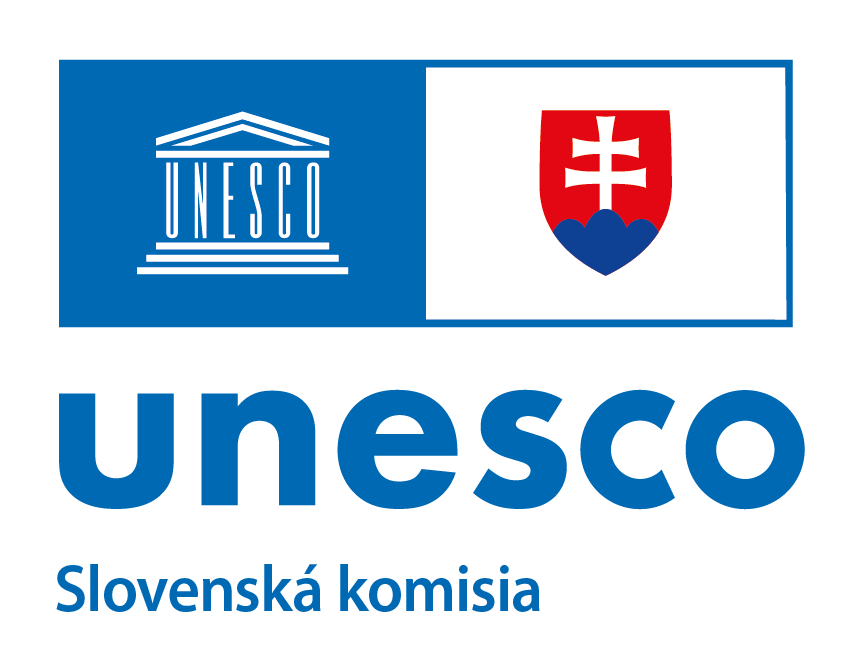
Photo: Radovan Dranga, World Refugee Day 2023, 18th June 2023, a workshop organized by Milan Šimečka Foundation as part of the project.
Selected project outcomes
On November 15, 2024, a participatory meeting was held in Bratislava to discuss the findings of a research study on the role of Ukrainian living heritage in displacement and the importance of its safeguarding. The meeting included research partners who participated in the study from July 2023 to February 2024.
The purpose of the meeting was to present the research findings and consult with those who took part in the study. This approach aligns with participatory methods in qualitative research, which aim to reduce epistemic inequality, ensure equity and fairness in relationships with research partners, and strengthen the voices of non-academic participants. By involving them in the process of interpretation, it also provides essential feedback on the use of research findings and on how research data is applied in academic contexts.
The meeting was attended by 29 participants. Feedback and discussion on individual findings and conclusions enriched the interpretative dimension of the research from the perspective of the target community.
Photo 1: Presentation of Research Findings (Martina Wilsch)
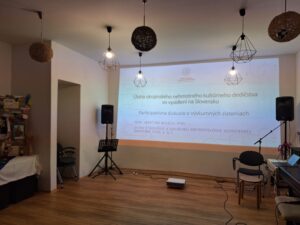
Photo 2: Presentation of Findings 1 (Galina Korolevych)
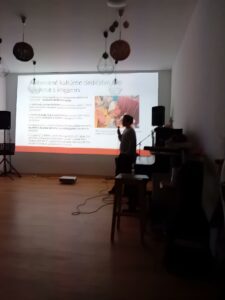
Photo 3: Presentation of Findings 2 (Galina Korolevych)
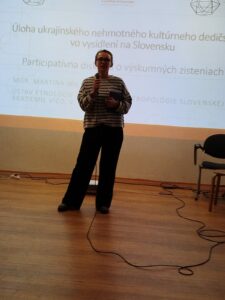
Photo 4: Discussion on Findings (Martina Wilsch)
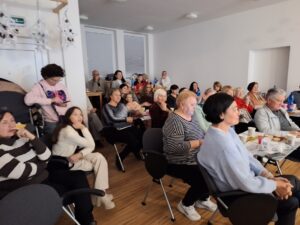
Photo 5: Presentation of Ukrainian Living Heritage During the Event (Galina Korolevych)
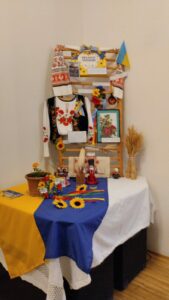
Photo 6: Presentation of Ukrainian Living Heritage During the Event 2 (Galina Korolevych)
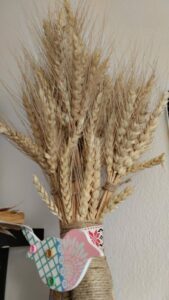
Photo 7: Presentation of Ukrainian Living Heritage During the Event, “Motanky” Puppets (Galina Korolevych)
